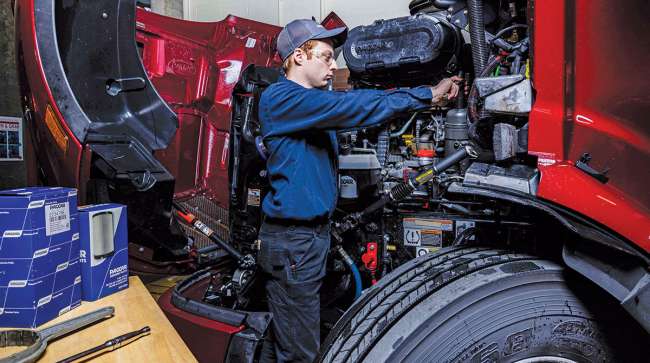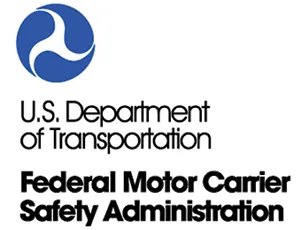Senior Reporter
FMCSA Approves ATA Plan to Reduce Time to Certify Inspectors

[Stay on top of transportation news: Get TTNews in your inbox.]
Federal regulators have granted a five-year exemption to American Trucking Associations that could help mitigate the tech shortage, and exempt motor carriers and intermodal equipment providers from the requirement that an individual must complete one year of training to conduct annual commercial motor vehicle inspections.
ATA said the Federal Motor Carrier Safety Administration’s waiver, made public Jan. 16 in a Federal Register notice, will cut the time new technicians need to spend preparing to enter the workforce while maintaining high standards for safety and competency. The idea also has the potential to stem some of the nettlesome tech shortages.
Under the new policy requested by ATA in 2020, technicians would be allowed to skip the federally required one-year of training or experience needed to conduct CMV inspections and brake-related repair and maintenance provided they received training based on ATA’s Technology & Maintenance Council Recommended Practices.
“TMC, through its study groups and task forces, has developed a robust set of Recommended Practices, and these RPs form the backbone of the knowledge leadership the council provides to its members and the industry,” TMC Executive Director Robert Braswell said. “This exemption recognizes that TMC’s RPs meet the industry standard for technical knowledge, and technicians who are trained on them are more than capable of performing essential work.”

Braswell
The exemption applies to motor carriers, intermodal equipment providers and individuals, allowing them to self-certify that they have completed a training program based on TMC’s RPs. This training and certification, rather than the currently required year of additional training or work experience, “would likely achieve a level of safety equivalent to or greater than the level of safety provided by the regulatory requirements,” FMCSA said.
“Quite simply, the Federal Motor Carrier Safety Regulations just say if you want to be qualified to vehicle inspect, a person who is qualified to do brake-related maintenance or repair, you simply need a year of either schooling or experience or some combination of both to qualify you for that role takes a year,” Braswell told Transport Topics. “Now an individual can become qualified as an inspector in as little as four months if he or she uses TMC’S Recommended Practices.”
TMC has developed more than 500 Recommended Practices organized into 15 sections that outline individual procedures for inspecting, repairing or replacing components on commercial vehicles. The RPs are available in a document titled “TMC’s Recommended Practices Manual.”

“We believe that by allowing technicians trained in programs based on TMC’s Recommended Practices, the industry can make it easier and more efficient for new technicians to enter the industry,” Braswell said. “The industry continues to face a persistent shortage of technicians, so anything we can do to cut red tape and get students and young people onto the shop floor quickly will help address it.”
TMC does not actually administer the course.
“The school or the fleet has to follow the TMC guidelines, but there are no requirements that users be TMC members,” Braswell added.
The exemption applies to motor carriers, intermodal equipment providers and individuals, allowing them to self-certify that they have completed a training program based on TMC’s RPs.
Truck Parking Club's Evan Shelley discusses how innovative platforms are turning available space into opportunities for reserved parking. Tune in above or by going to RoadSigns.ttnews.com.
“We believe that by allowing technicians trained in programs based on TMC’s Recommended Practices, the industry can make it easier and more efficient for new technicians to enter the industry,” Braswell said. “The industry continues to face a persistent shortage of technicians, so anything we can do to cut red tape and get students and young people onto the shop floor quickly will help address it.”
“FMCSA supports ATA’s TMC recommendation that the training program duration should be at least 540 hours (approximately 13.5 work weeks) for new individuals, divided into one-third classroom-based instruction and two-third laboratory hands-on based instruction,” the agency said.
Braswell said that the shortage of traditional diesel technicians is getting better.
“Still, if you take a look at the demand for diesel technicians there are about 9,700 new positions and about 31,000 replacement positions,” Braswell said. “So the total demand is 40,000 or 41,000, and, replacement positions are outpacing positions created by growth to a rate of about 4 to 1.”
Want more news? Listen to today's daily briefing below or go here for more info:





